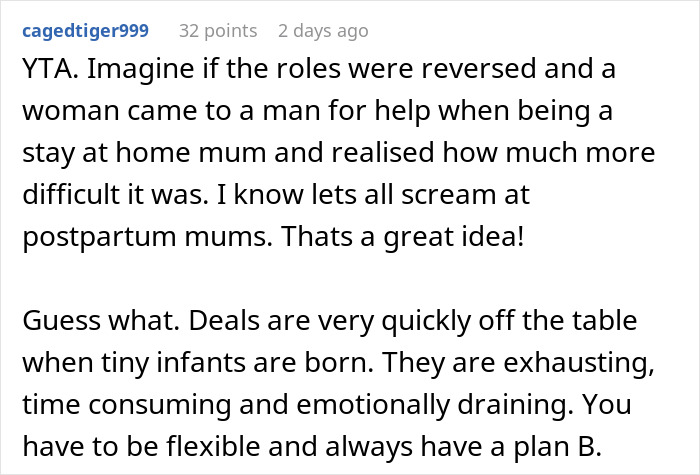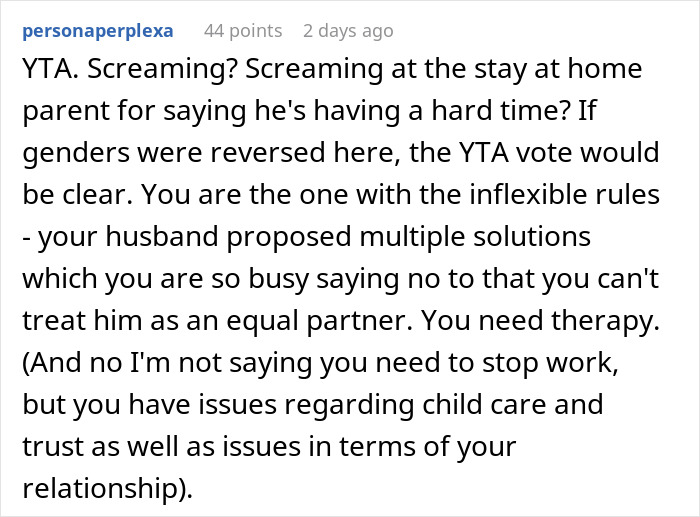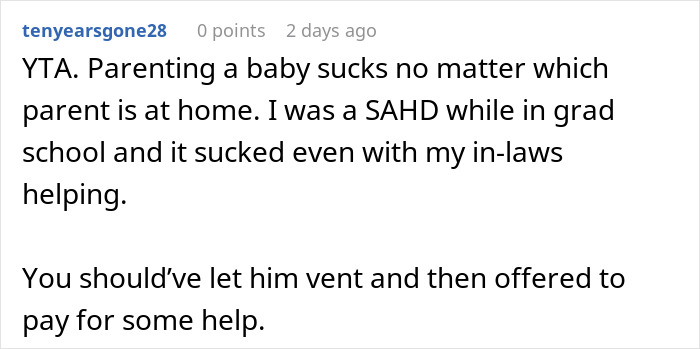Both parents need to do their best to be involved in raising their children and support each other through the process. That includes changing their diapers, cooking, cleaning, remembering doctors’ visits, and a few dozen more things. However, some couples decide that it’s much more logical for one of them to become a stay-at-home parent while the other remains the primary breadwinner.
Internet user u/Obvious-Mistake-7801, a new mom and neurologist, asked the internet for advice after a huge argument at home. She shared how she lashed out at her husband after he suggested going back on his promise to be a stay-at-home dad. Scroll down to read the full story and to see how the r/AITAH community interpreted the situation. Bored Panda has reached out to the author, and we’ll update the article as soon as we hear back from her.
Raising kids is no joke. Many new parents struggle to adapt to the massive changes that occur in their lives

Image credits: Vailery / Envato (not the actual photo)
One working mom turned to the internet for help after her husband broke down and admitted he doesn’t want to be a stay-at-home dad

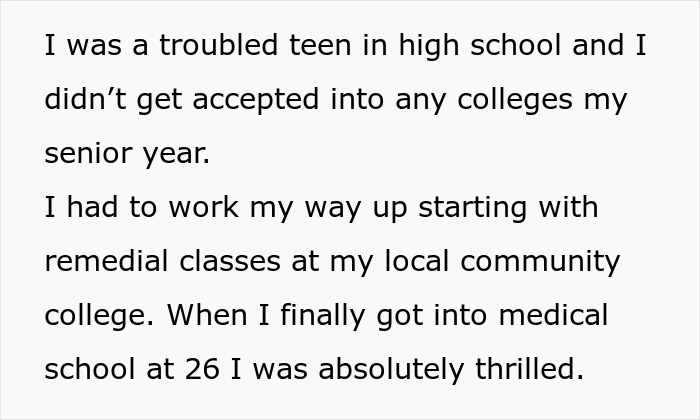
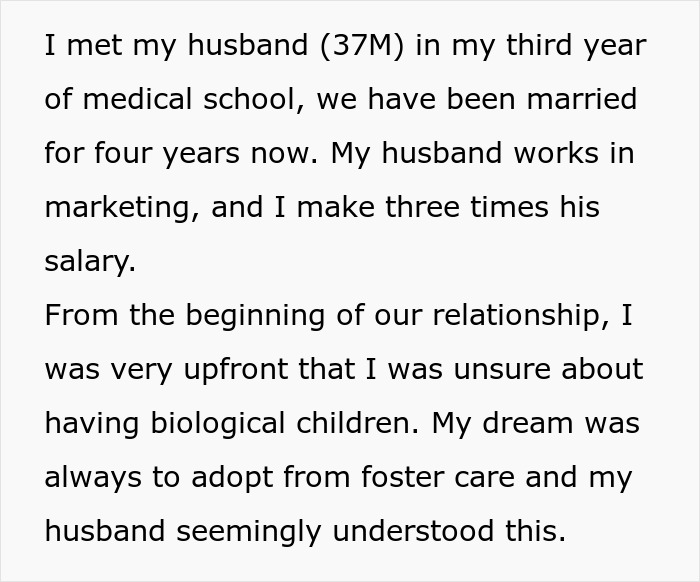
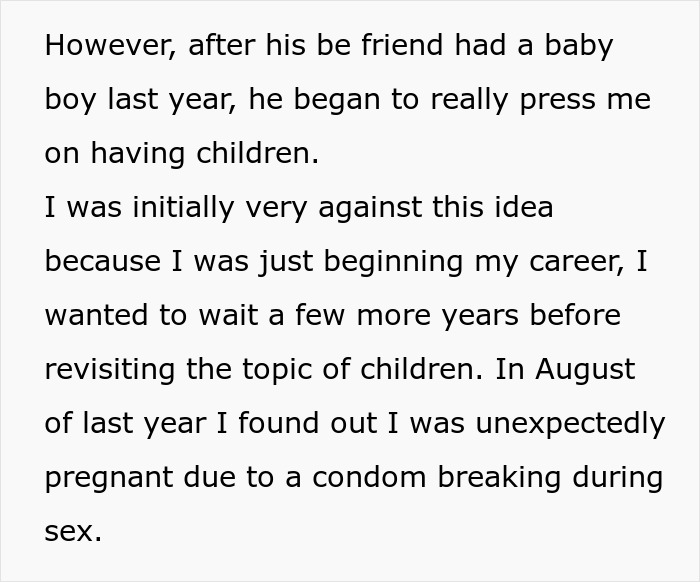
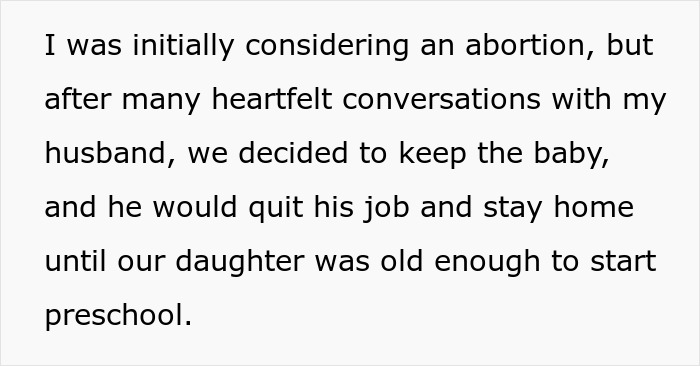

Image credits: nd3000 / Envato (not the actual photo)


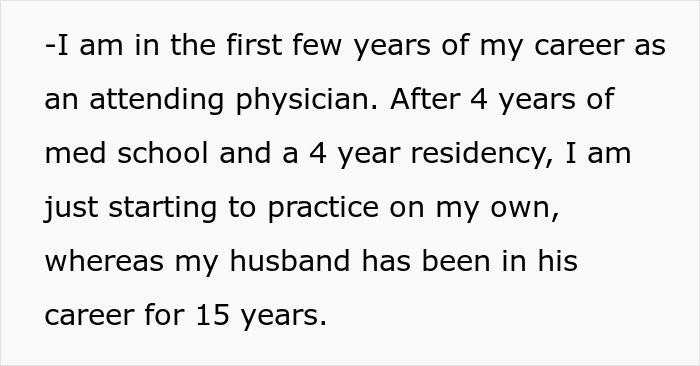
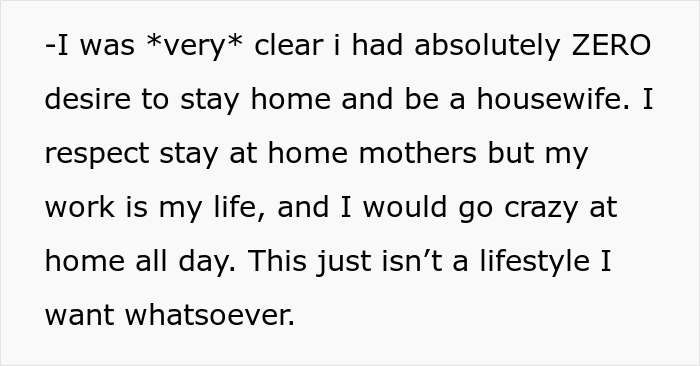
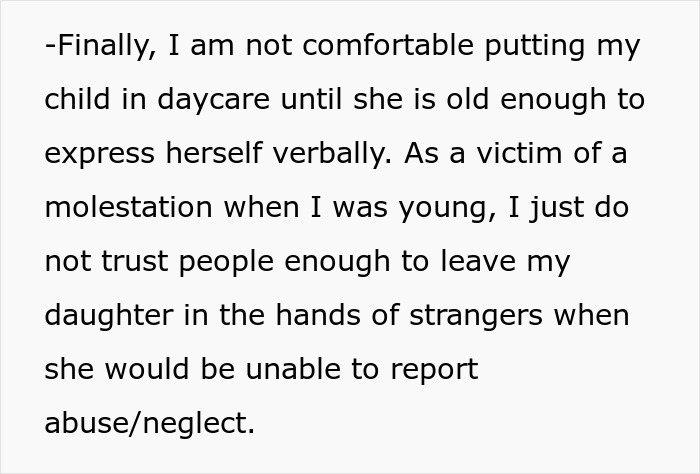
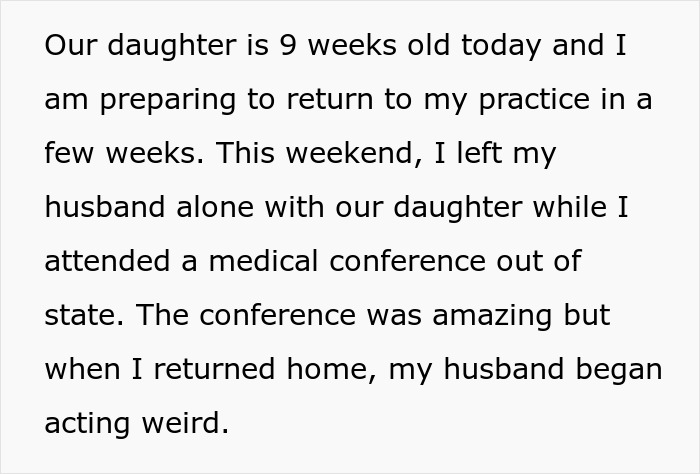

Image credits: Prostock-studio / Envato (not the actual photo)
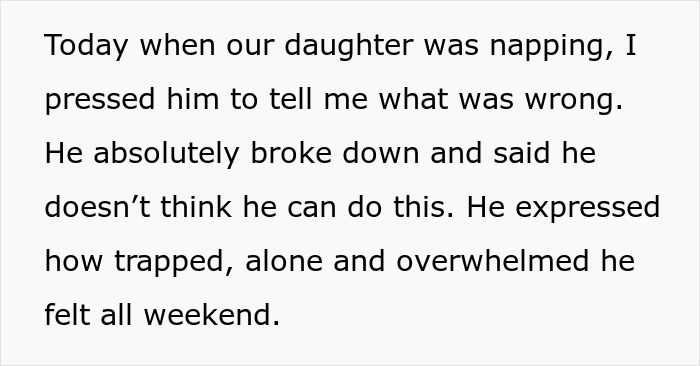
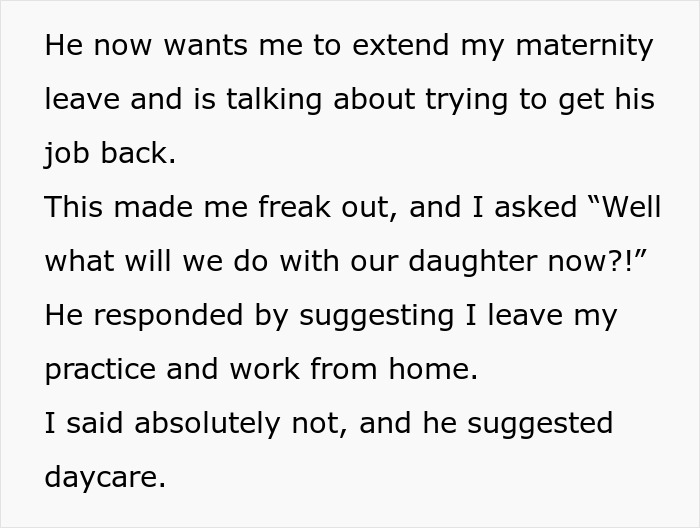
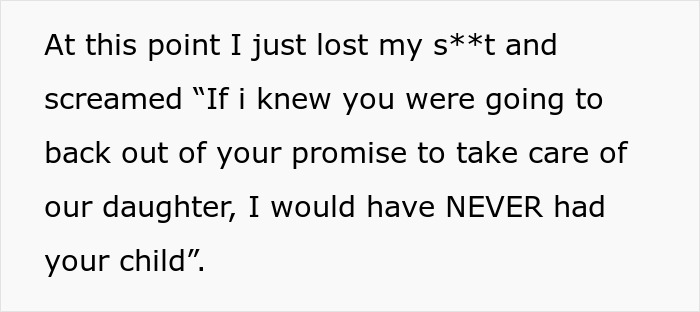
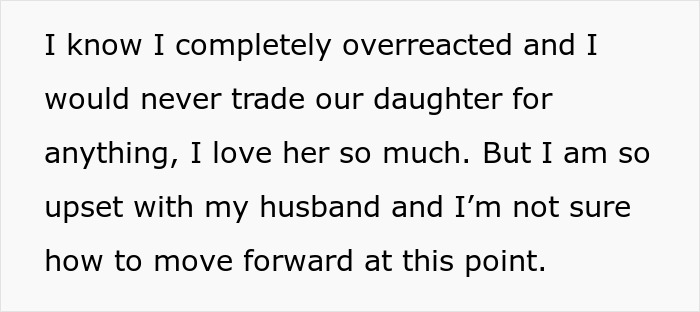
Image credits: Obvious-Mistake-7801
Arguments don’t necessarily have to be a ‘bad’ thing. They can be healthy and help both partners tackle serious issues

Image credits: Ketut Subiyanto / Pexels (not the actual photo)
If someone decides to be a stay-at-home parent, more power to them! Having a family and raising kids can be extremely fulfilling and purposeful. But it really does matter that the parent does this willingly. They have to choose it.
Someone who’s forced into it, with little to no support, will likely end up resenting their partner in the long run. Especially if they have no experience.
It’s natural to have a tough time adapting to being a new parent. There are huge changes in your life. So, having a breakdown or accidentally lashing out at your partner is something that can happen. The important thing is that these don’t turn into habits and that they’re not the only way both partners communicate.
Emotions are raw. Everyone’s on edge. And couples argue. There’s nothing wrong with a good, healthy argument, so long as both people remember that they’re on the same team. Actually talking about these problems and getting them out in the open is far better than keeping them hidden where they fester. With that in mind, nobody should feel judged for being honest and vulnerable.
Although more dads do become stay-at-home parents, there’s still a certain stigma attached to this decision

Image credits: Ksenia Chernaya / Pexels (not the actual photo)
There is nothing objectively ‘wrong’ about being a stay-at-home dad. However, the BBC notes that despite becoming more popular, it’s still an unusual arrangement, and there’s still a stigma hovering overhead.
In the United States, 5.6% of families have working mothers and non-working fathers. Meanwhile, 28.6% have working fathers and non-working mothers.
Across the Atlantic in the European Union, the situation is even more clear-cut. “About one in 100 men pause their careers for at least six months for childcare, compared to one in three women,” the BBC writes.
According to Eurostat’s data, nearly 1 in 4 people interrupted their careers to take care of their children in the EU. Estonia has the highest share of people who interrupted their work for childcare reasons, standing at 38.7%. Meanwhile, in Denmark, it was only 14%.
Brendan Churchill, a sociologist and fatherhood researcher at the University of Melbourne in Australia, explained to the BBC that the male breadwinner model still lingers.
“It is reinforced daily in our culture. Think about the advertisements on television or in the newspaper that reinforce the nuclear family of four. “It also persists in our social policy frameworks, even though there’s been lots of change, our reference point is still that family of four with a male breadwinner.”
The result is that, in most countries around the world, paternity leave is still far less generous than maternity leave.
Every parent needs a support network, whether that’s their partner, family, friends, or hired help

Image credits: Pixabay / Pexels (not the actual photo)
There are no ‘perfect’ solutions if someone’s struggling to be a parent. Parenting, like everything else, is a skill. You build it up slowly, over time. But the support you get from your family and friends can be invaluable.
Having them babysit your child, even for a few hours, can help you take a nap, exercise, be social, work on your hobbies, or do anything that you need to in order to rest and recharge.
It’s also vital that you and your partner come up with a childcare system that works for both of you. For example, someone who is the primary breadwinner might end up doing fewer chores overall, but they could still pitch in to show that they’ve got their partner’s back.
Meanwhile, the parents could agree that they’d take care of the kids on their own for a while to give each other some time to be alone.
And if money isn’t an issue, hiring a full-time nanny, a part-time babysitter, or a housecleaner can take a lot of pressure off everyone’s shoulders.
At the end of the day, though, nobody’s life stops when they become a parent. It’s still possible to work, meet people, do hobbies, travel, etc. You can still do all the things that brought you joy before, but now, you’ll have to be more adaptable.
Many readers supported the mom’s position. Here’s their perspective
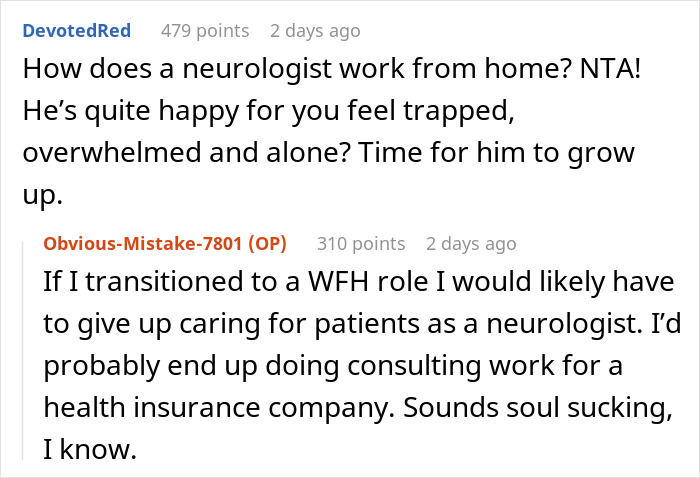
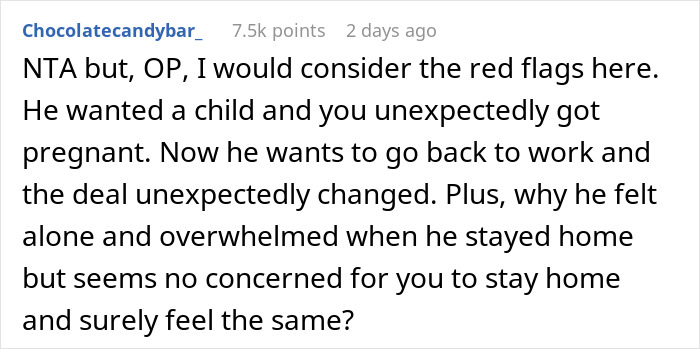
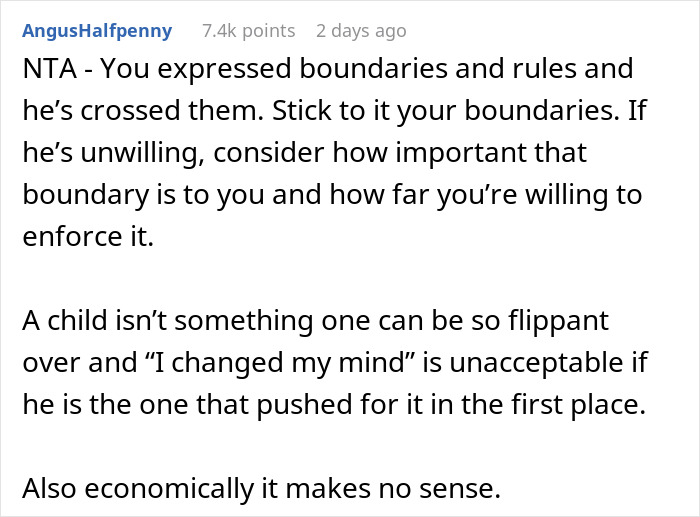

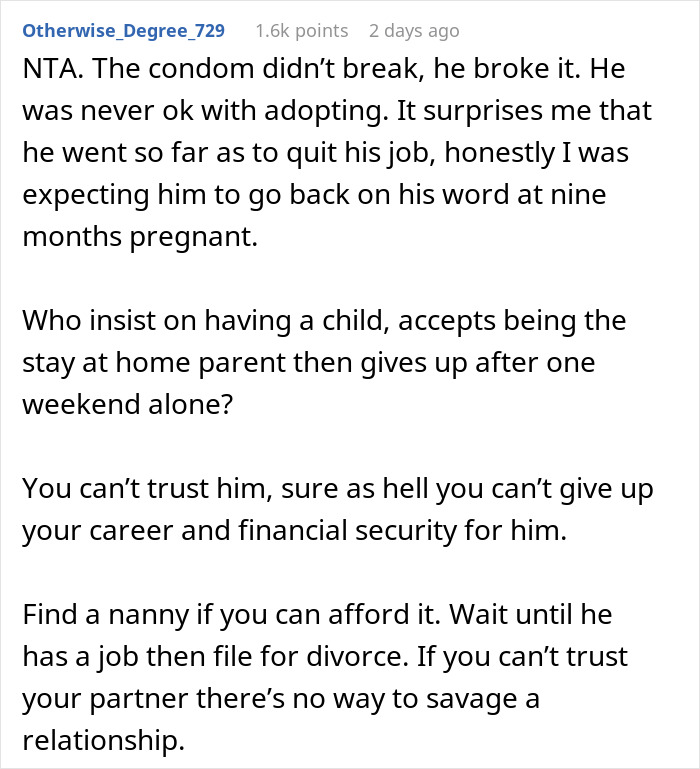
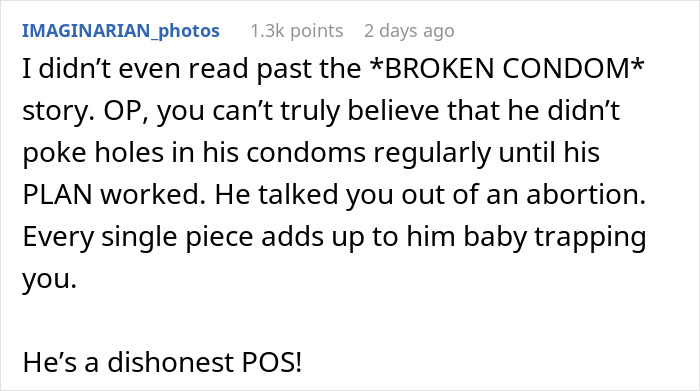
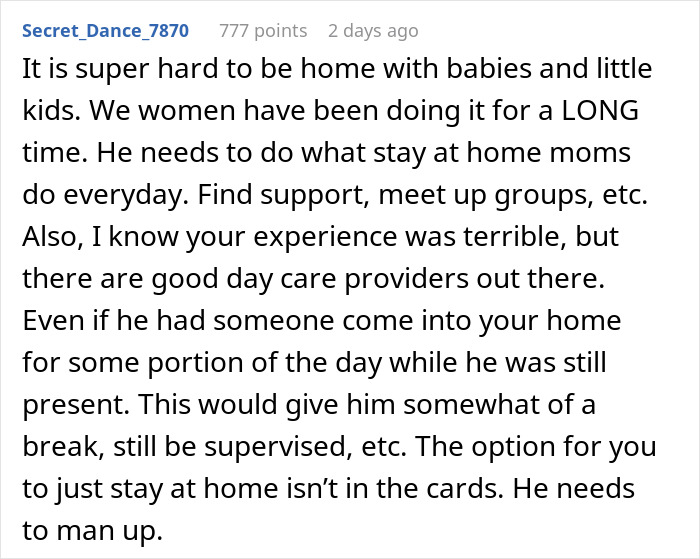
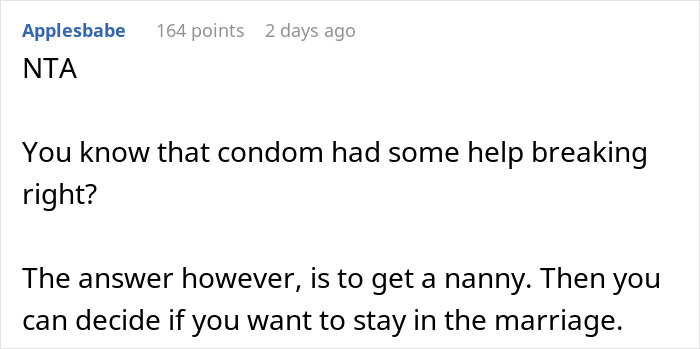
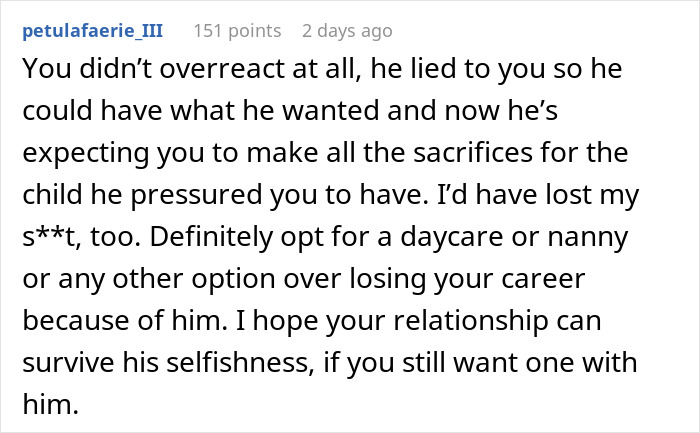


However, other folks had a slightly different take on what happened. Here are their thoughts
